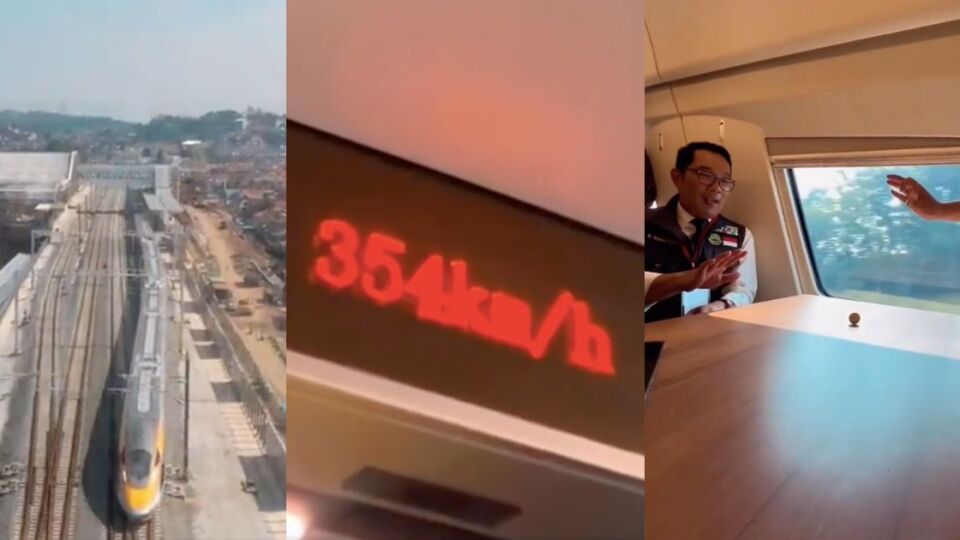Ding, dong. West Java Governor Ridwan Kamil is back to give us another Jakarta-Bandung high-speed train progress update, and we think you’ll like this one.
In a tweet he posted yesterday, Ridwan said that the train is on track for its Aug. 18 commercial launch. Not only that, passengers can also ride for free for the first three months of the service.
In the tweet, Ridwan said that Coordinating Maritime Affairs and Investment Minister Luhut Pandjaitan has agreed to the free rides proposal to celebrate the train’s launch. No details have been given yet regarding the free rides, but we imagine it would involve some form of a registration period.
The tweet also includes a video of Ridwan and Luhut recently hopping on the train as it embarked on a trial run from Jakarta to Bandung.
“354 km/h is the speed this high-speed train reached during the trial. Extraordinary. Halim to Padalarang in just 20 minutes,” the governor said, referring to the stations in East Jakarta and West Bandung.
At one point in the video, Ridwan conducted a “coin test” to see if a coin that he had stood up on its side on a table would topple if the ride wasn’t smooth. It didn’t.
The 142-kilometer rail line will connect Jakarta and Bandung, two of the most populous and economically important cities in Indonesia, in just 35 minutes. Driving between the two cities on a non-congested day usually takes up to three hours.
The train will stop at four stations: Halim, Karawang, Padalarang, and Tegalluar on the outskirts of Bandung. Those who are getting off at Tegalluar will have to hop on a feeder bus or find their own way to Bandung’s city center.
The project, which began construction in 2016, has faced several challenges and delays due to land acquisition issues, cost overruns, and the COVID-19 pandemic. The initial budget of US$5.5 billion has ballooned to US$7.2 billion, which the Indonesian government has agreed to cover using the state budget.
The Jakarta-Bandung high-speed railway – the fastest train in all of Southeast Asia – is the first phase of a planned 750-kilometer line that would run across the island of Java, stopping at Kertajati, Yogyakarta, Solo, and Surabaya.




